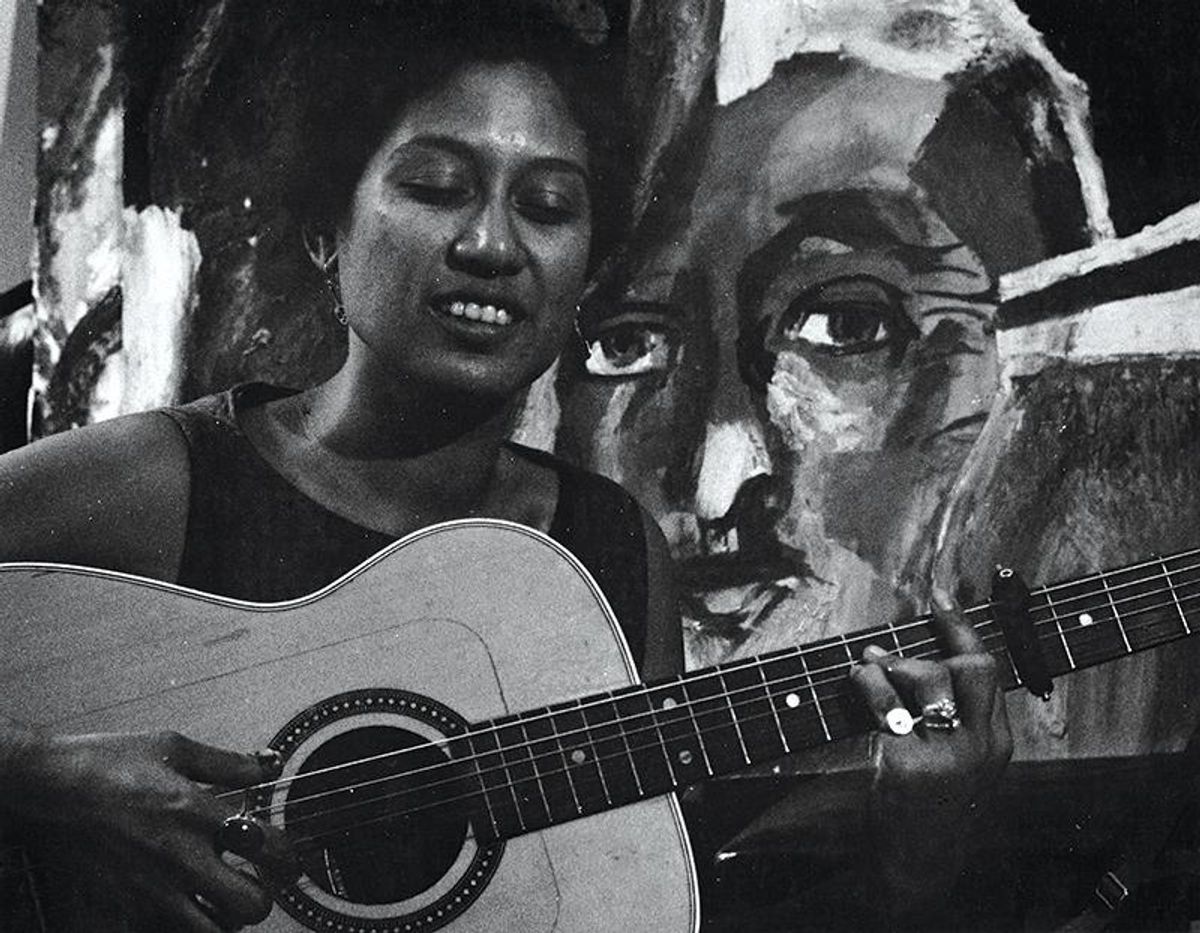In 1973, on the day before Easter, Diane Divelbess received an unexpected visitor to her California home: Norma Tanega, the folk singer who, just a few years prior, had become famous through her single "Walkin' My Cat Named Dog." Divelbess and Tanega attended Scripps College together and roomed together in the early '60s. But the visit was still a surprise for Divelbess, an artist who wrote the introduction for a new visual biography about her friend.
"She drove up and she said, 'Do you have room? Can I come live here?'" Divelbess recalls. "That's just the way she was." She told the singer yes -- as long as she could move her belongings in before Easter service at her Episcopal church. "That was the beginning of a nice long relationship."
To be friends with Tanega -- "a musical genius" who died at age 80 in 2019 -- was also to be swept into that period's queer Tinseltown. (Tanega, while renowned in her own right at the time, dated Dusty Springfield after performing as her opening act in England.) On one occasion, Divelbess attended "a real Hollywood kind of party" at Springfield's Hollywood Hills home. "It was a scream, really. [Springfield] was dressed as Marie Antoinette," says Divelbess. She met Lily Tomlin there, who "was so wonderful." But the scene was beyond Divelbess's ken. "I'm the kind of person who goes to a movie and [doesn't] have a clue who the actors were," attests the California Polytechnic State University educator. "Norma [said] I had to start paying attention to this."
Through Tanega, Divelbess learned about the pressures facing gay entertainers in that era. "Nobody in those days could come out and be in entertainment. Dusty, especially, was at the height of her popularity in England," Divelbess says. She recalled how a onetime roommate of Springfield's, a writer for The Hollywood Reporter, was "forced" to marry a man after rumors about her sexuality circulated. At the time, the most "common" arrangement, Divelbess says, was "a lesbian would marry a gay man" as so-called beards for one another. "That would please the audiences and allow them to live their own lives."
"We were certainly not amongst the [out] activists," Divelbess says. Even venturing out at night on Hollywood Boulevard carried risks of arrest -- for gay men, in particular. She recalls how one of her friends was stopped by police by venturing out to acquire aspirin at 10 p.m.
While they avoided gay bars for fear of a raid, Divelbess recalls one queer-friendly establishment she and Tanega frequented: a piano bar named the Frog Pond. The pianist "would wear a tiara and play wonderful songs at the piano. And they all had gay lyrics."
While Tanega may not have been marching in the streets, her unique voice and queer worldview influences culture in the present day. Die-hard fans of What We Do in the Shadows will know that the vampire comedy's theme song, "You're Dead," was written and sung by Tanega. "I have no idea" why Tanega would write a macabre song that repeats the titular phrase over and over, Divelbess confesses. But "that's what made her so fun and so interesting."
Tanega's legacy lives on through new projects: I'm The Sky: Studio and Demo Recordings, 1964-1971 (Anthology Recordings) and the visual biography Try to Tell a Fish About Water (Anthology Editions). Divelbess, who penned the introduction for the biography, hopes her friend's music inspires a new generation to "embrace your life and give it your all. That's exactly what she did. She smiled through everything."
This story is part of The Advocate's 2022 Advocacy and Politics issue, which is out on newsstands July 12, 2022. To get your own copy directly, support queer media and subscribe -- or download yours for Amazon, Kindle, Nook, or Apple News.

















































































